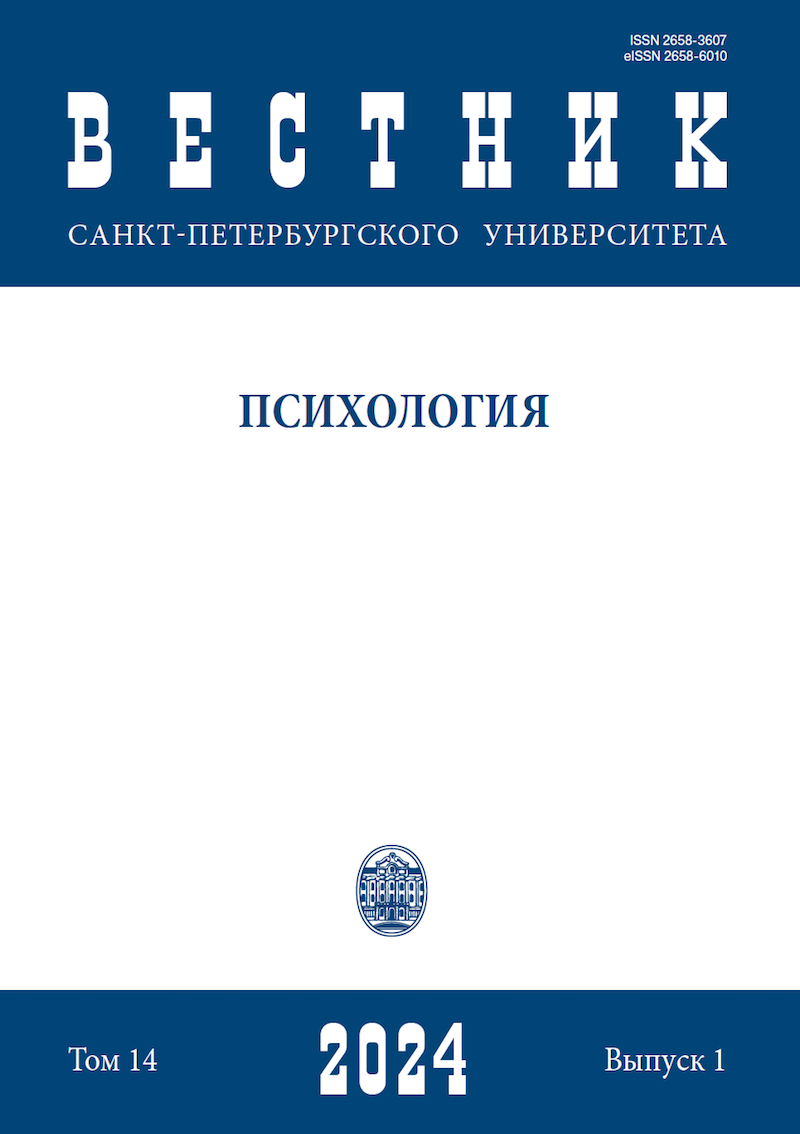Life satisfaction of elderly women and men
DOI:
https://doi.org/10.21638/spbu16.2024.109Abstract
The article presents the results of an analytical review of modern publications and an empirical study of life satisfaction among women and men of elderly and senile age. The problems of studying life satisfaction and psychological well-being among older respondents, related to the formation of gender-balanced samples and the selection of adequate instruments, are noted. The results of studies of the examined characteristics in women and men, as well as in representatives of different age groups, are demonstrated. Unique factors of psychological well-being in different samples are shown. Elderly respondents noted a greater importance of health, prosperity and peace in the family, a positive attitude towards themselves and others, as well as spirituality, compared to younger respondents who were more focused on self-development and activity. A distinctive feature of this work is the comparison of the results in two groups equalized by age, level of education, professional and family status, which included 36 women and 36 men aged from 64 to 89 years. When comparing the results of these groups, differences were found only in emotional support and self-esteem of character. Life satisfaction in old and senile age does not differ between men and women, but it is associated with different variables. For women, the indicators that reflect the success of social interaction — emotional and instrumental support and self-esteem of character are the most important. Self-esteem of appearance at this age is not a resource for life satisfaction. Life satisfaction among older men is related to their self-esteem and does not differ depending on social support or sociotropy/self-sufficiency, nor on involvement in family interactions. The question is raised about the effectiveness of using the Differential Loneliness Questionnaire in this age group.
Keywords:
life satisfaction, elderly and senile age, loneliness, self-esteem, social support
Downloads
References
Психоэмоциональное благополучие: интегративный подход / под ред. Л. А. Головей. СПб.: Нестор-История, 2020.
References
Downloads
Published
How to Cite
Issue
Section
License
Articles of "Vestnik of Saint Petersburg University. Psychology" are open access distributed under the terms of the License Agreement with Saint Petersburg State University, which permits to the authors unrestricted distribution and self-archiving free of charge.




